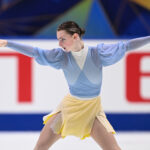
All-Japan Figure Skating Championships Always Deliver Excitement and Emotion on Par with Top International Events — A Look Back at the 2024 All-Japan Figure Skating Championships — Part one ladies
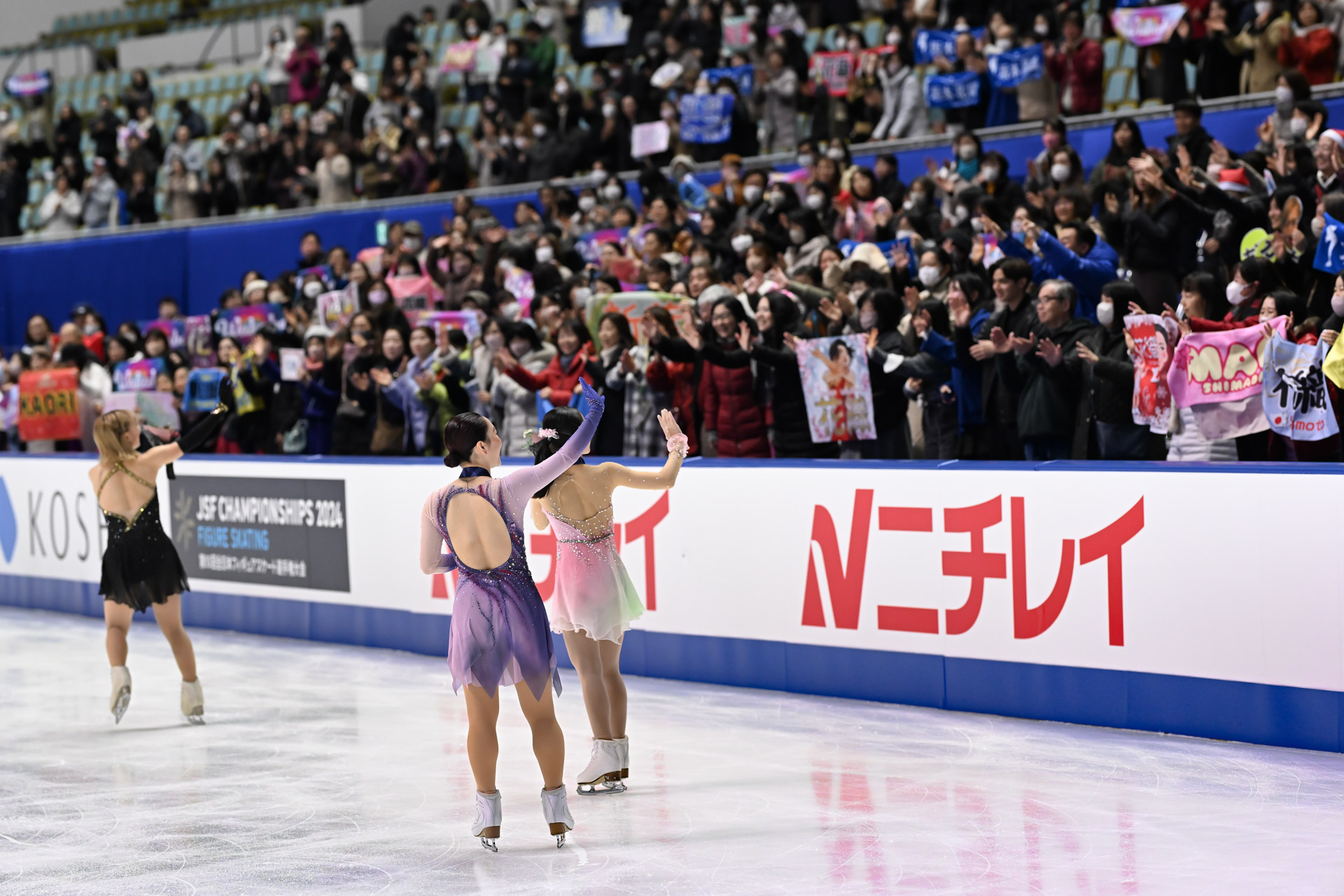
Following the retirement of six-time national champion Shoma Uno, the spotlight naturally shifted to the new generation of rising star skaters, intensifying the competition within the men's singles. As world champion Ilia Malinin, makes continuous progress, difficulty has simultaneously increased for Japanese male skaters to reach the top in international competitions. Meanwhile, on the women's side, Kaori Sakamoto aimed for her fifth title, while the rest of the field have their eyes on breaking through the difficulty barrier of the notorious triple Axel jump (3A). Many strong contenders set their sights on surpassing the 200-point mark—an achievement worthy of a Grand Prix Series podium finish.
This National session became an ideal stage for skaters to showcase their ambition and capability. In the senior or junior divisions alike, every participant yearned to prove that the gap between Japanese figure skating and the world's best is truly narrowing.
Although the champion Yuma Kagiyama completed the event with a smile and Kaori Sakamoto successfully defended her title by a narrow margin, soaring expectations and mounting pressure had caused skaters competing in the Grand Prix Series and vying for World Championship spots to falter, falling short of their potential—a stark contrast to last year's Nationals. In comparison, the junior skaters demonstrated both dedication and talent, proving they have the strength to carry the future.
In this competition, the ages of the men's singles skaters ranged from 14 to 37, and the women's singles from 14 to 29, clearly reflecting the flourishing talent of the figure skating sport in Japan.
Kaori Sakamoto: The Five-Time Queen Keeps Strengthening
The three-time consecutive World Champion, Kaori Sakamoto has all but secured a spot in the World Championships due to her outstanding performance in this season's Grand Prix Series. She therefore focused more on whether she can achieve her fifth national title at the All-Japan Championships.
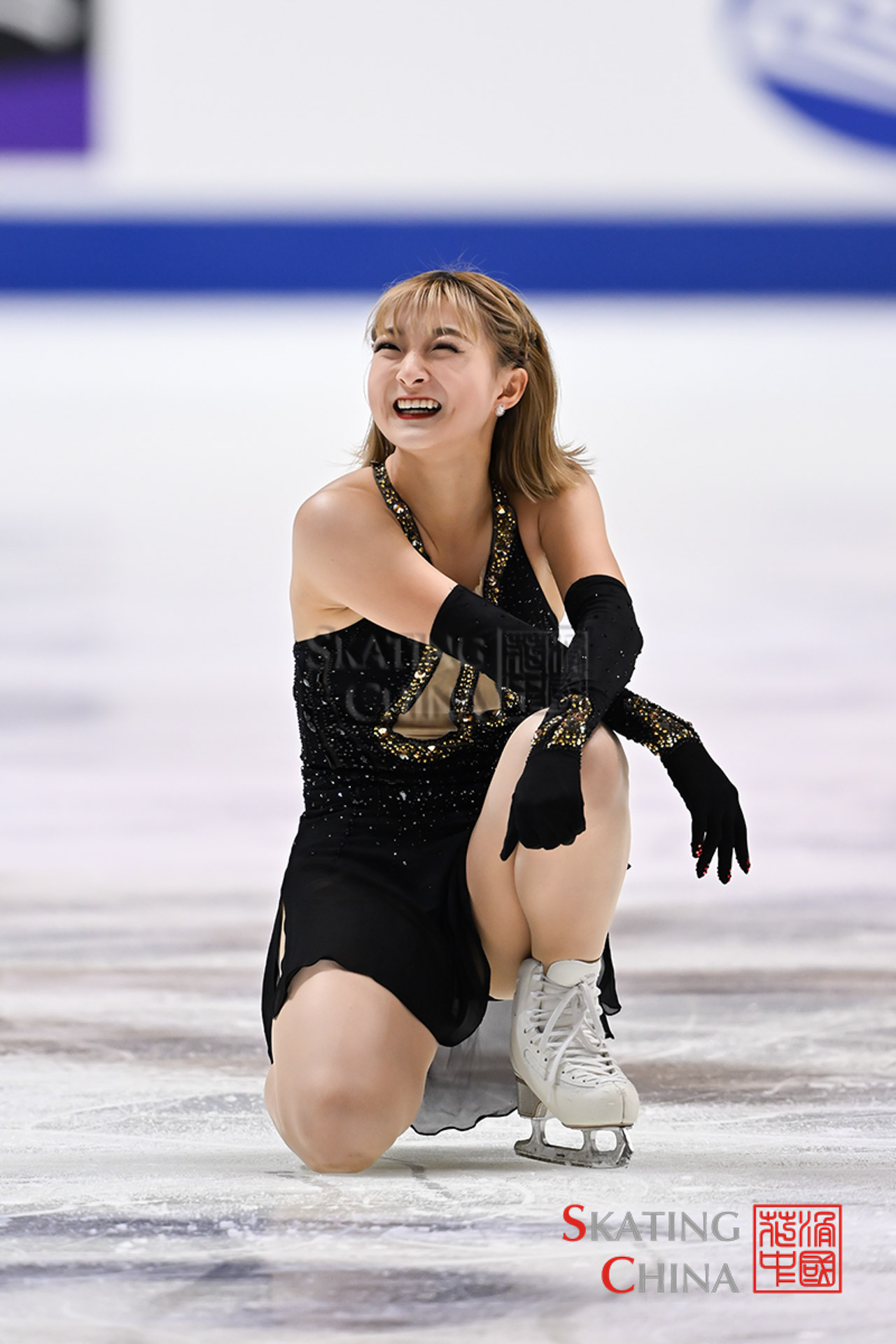
Photo by SkatingChina
Mao Shimada: A Soaring Challenger of Youth
Mao Shimada, the two-time World Junior Champion, is ineligible to compete in the upcoming World Championships and the 2026 Winter Olympics due to age restrictions. Yet this has in no way diminished her determination to push the limits. With her triple Axel jump(3A) now consistent, her next goal is to improve the success rate of the quadruple toe loop jump(4T). Just like the title of her short program, Defying Gravity, this young skater continues to jump higher, spin faster, and showcase a growing depth of character, with the joy of skating woven throughout her performance.
Shimada strategically places the I-spin combination at the end of her program, where it accelerates with the music before halting abruptly—where she shines with brilliance of her exquisite spinning technique, nearly magically .
Her free skating, View from the Window, is set to the music inspired by seasonal Japanese haiku, expressing the delicate emotions among changing seasons. As she matures, she demonstrates an increasing ability to master diverse musical styles. Even with an under-rotated 3A and a fall on the 4T, she delivered a composed and stable performance afterward. Her serene smile conveyed the spirit of youth, drawing the audience into a poetic vision on ice. She finished in second place with a total score of 219.00.
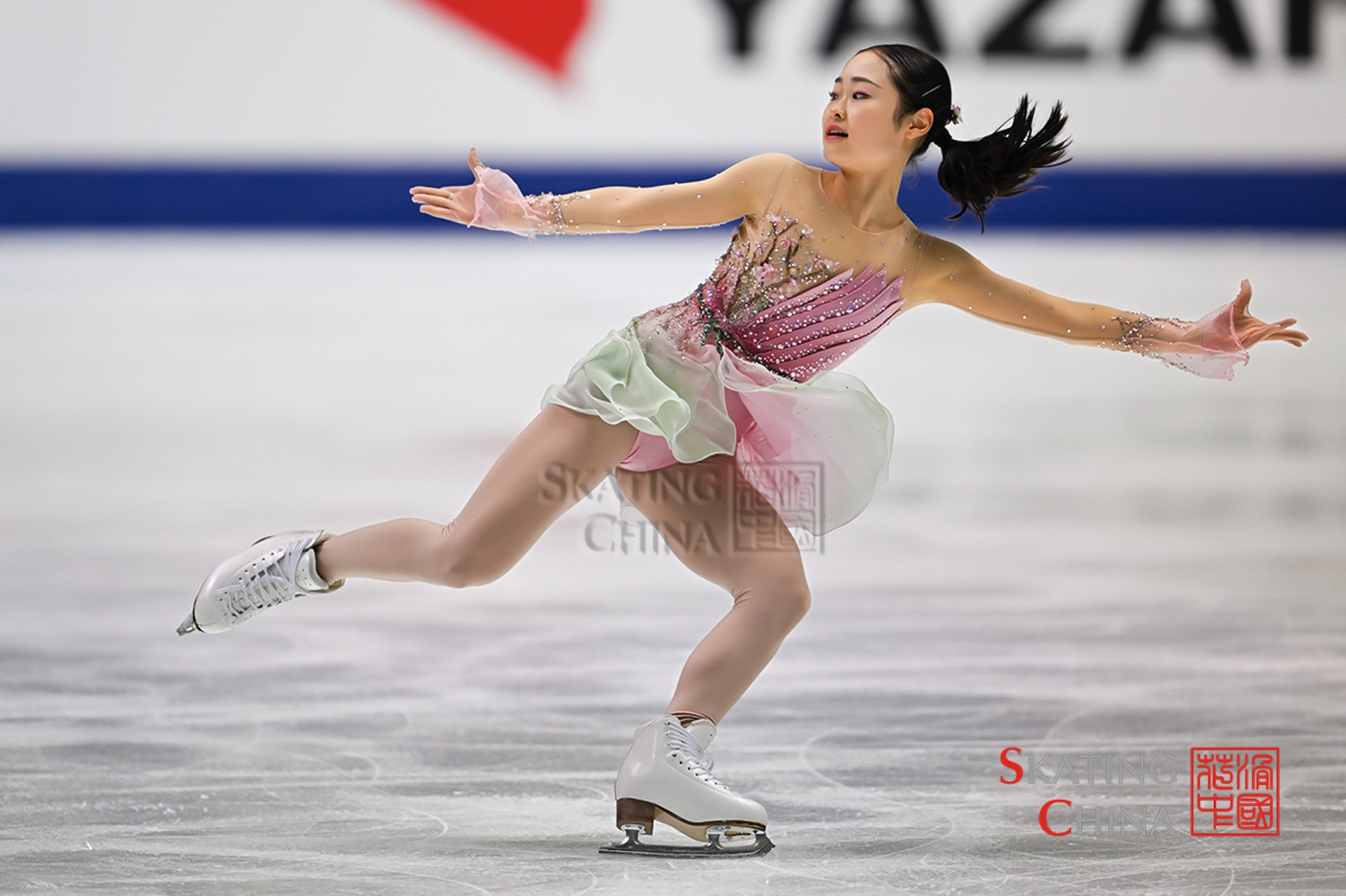
Photo by SkatingChina
Wakaba Higuchi: A Glorious Comeback from the Depths
Wakaba Higuchi, who only placed 12th last season, made a brilliant comeback this season by winning gold and silver in her two Grand Prix events, and now claimed the bronze medal with a strong total score of 206.40.
Her short program, Dune, from a space opera film, created an atmosphere interwoven with sci-fi and mystery. Her piercing gaze at the beginning, full of dramatic tension, set the tone for the performance. She landed the double Axel jump and triple Lutz-triple toe loop combination successfully, with large, expansive dance movements and high-speed skating that radiated both power and elegance—a perfect balance of masculinity and feminine grace.
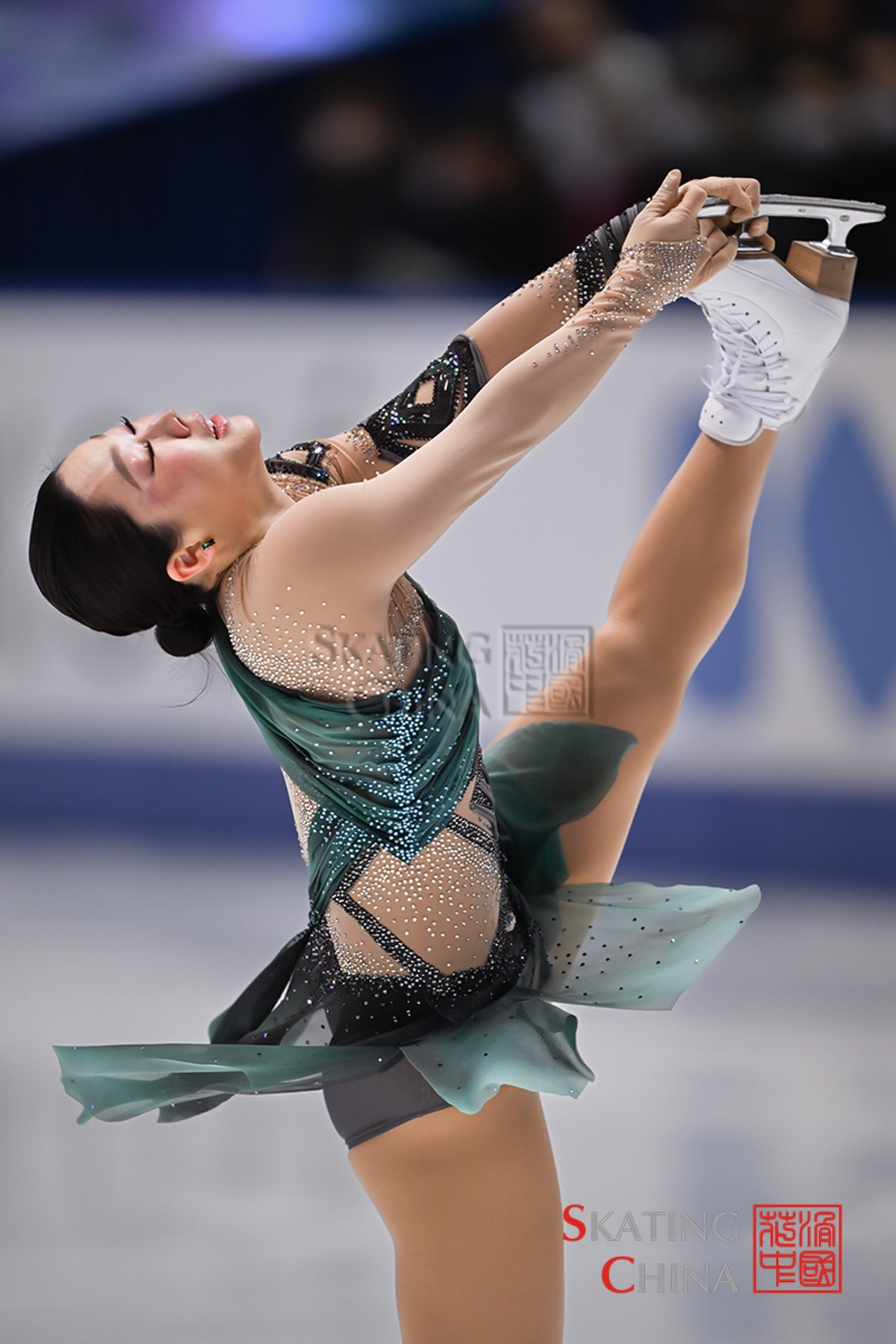
Photo by SkatingChina
Higuchi's physical expressiveness was profound—her facial expressions were fully engaged, and even her fingertips seemed to speak. With her commanding presence that went beyond merely completing a choreography, she led the performance with her own inner light, offering an artistic interpretation that surpasses the boundaries of structured movement.
Mone Chiba: A Shining Talent on the Rise
In her final junior season, Mone Chiba competed in Four Continents Figure Skating Championships and won a bronze medal as a senior competitor. During the 2023-2024 senior Grand Prix season, she earned a silver medal at the Japan National Championships and claimed gold at the Four Continents Championships. With her rapidly emerging talent, Chiba eagerly participated in the Grand Prix Final (GPF) this season and won the silver medal. Mone Chiba has become one of the most anticipated stars in the sport.
The double Axel jump was cleverly choreographed—Chiba, with her stable landing technique, traced a long arc on the ice, echoing the emotional lingering of the lyrics, "beside me to guide me." In the energetic second half, she landed a clean Rippon triple Flip jump and followed with dazzling footwork that captivates the audience's attention. The choreography incorporated details like a playful ponytail-whip, enhancing the liveliness and charm of the routine. Her facial expressions were bright and full of character, and the audience's response clearly showed how popular the program was.
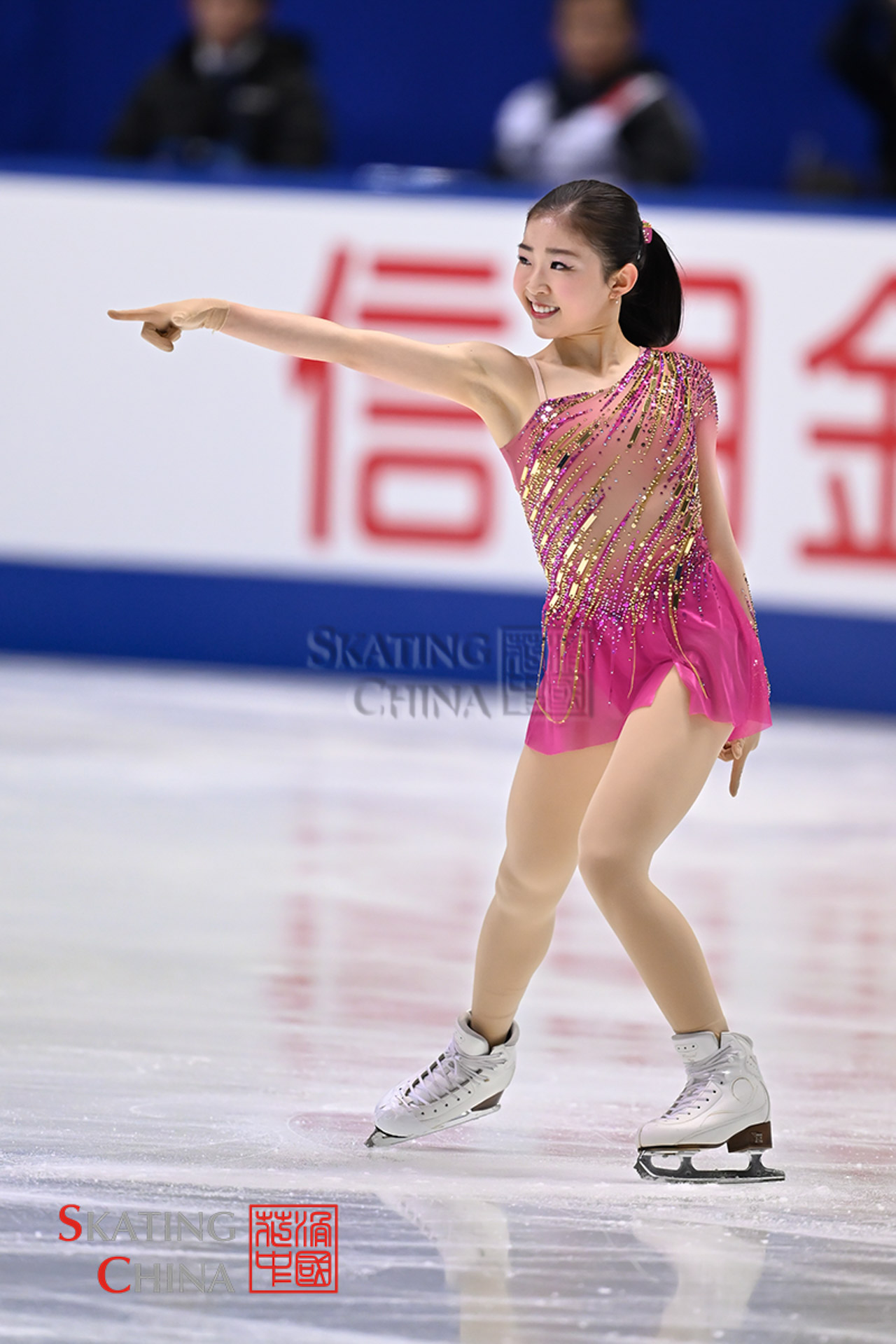
Photo by SkatingChina
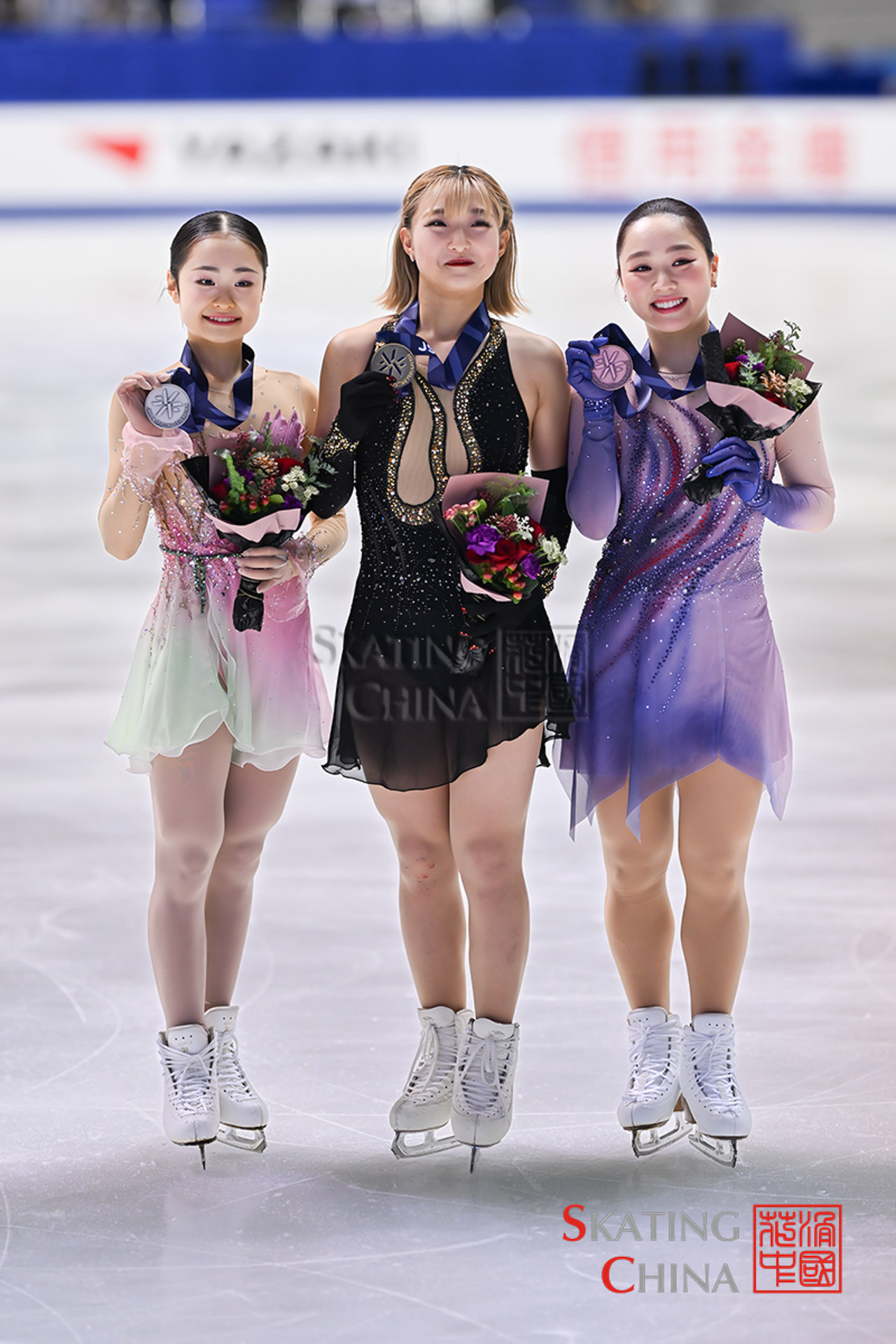
Photo by SkatingChina
The Youth Wave Breaking Through
In this competition, aside from Mao Shimada, several skaters—including Hana Yoshida, Rinka Watanabe, and Ami Nakai—also attempted the triple Axel jump, with Nakai even planning two triple Axel jumps, all showcasing their eagerness to conquer high-difficulty elements. As the battle for Olympic qualification intensifies, it is expected that more skaters will take on Ultra-C elements next season, bringing new unpredictability and excitement to women’s figure skating.
(Written by Tien-yun Chang
photographer: Hsinyi Ho)
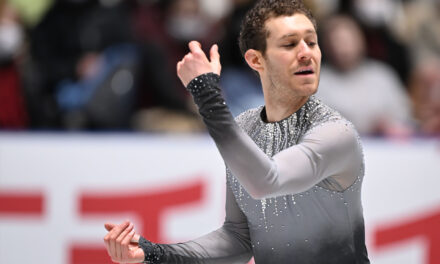
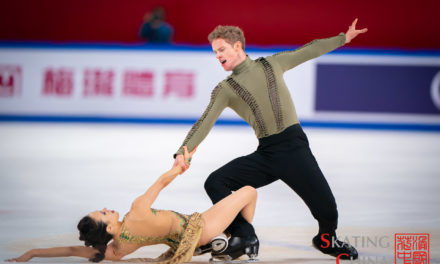
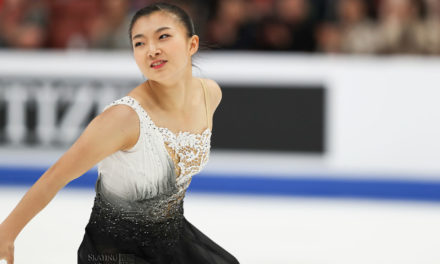
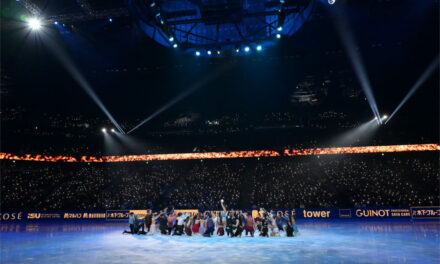
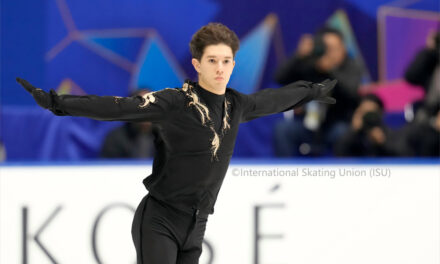
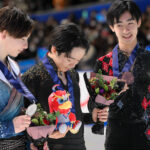
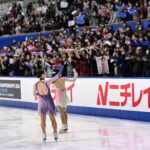
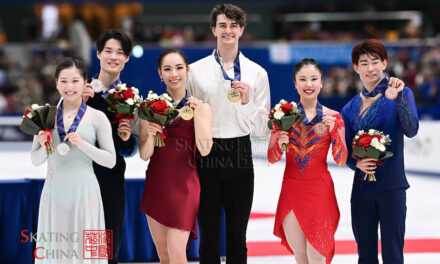
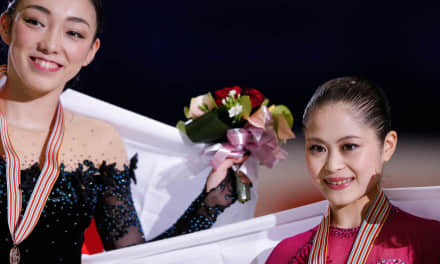
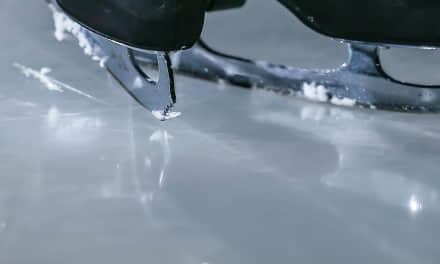
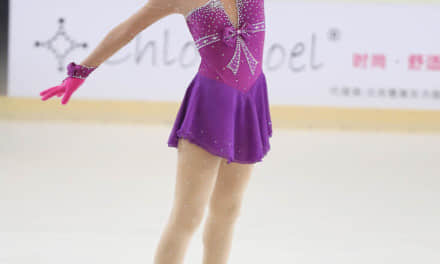
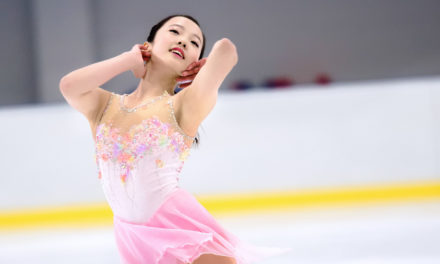

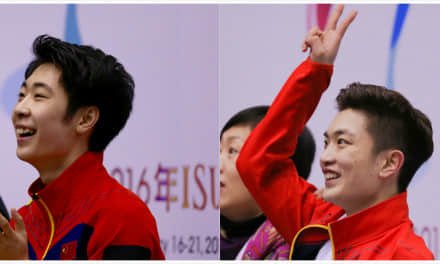
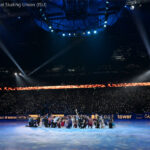
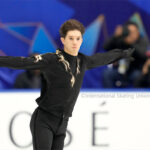
近期评论
——“花样滑冰是艺术与体育最好的结合”
——“花样滑冰是艺术与体育最好的结合”